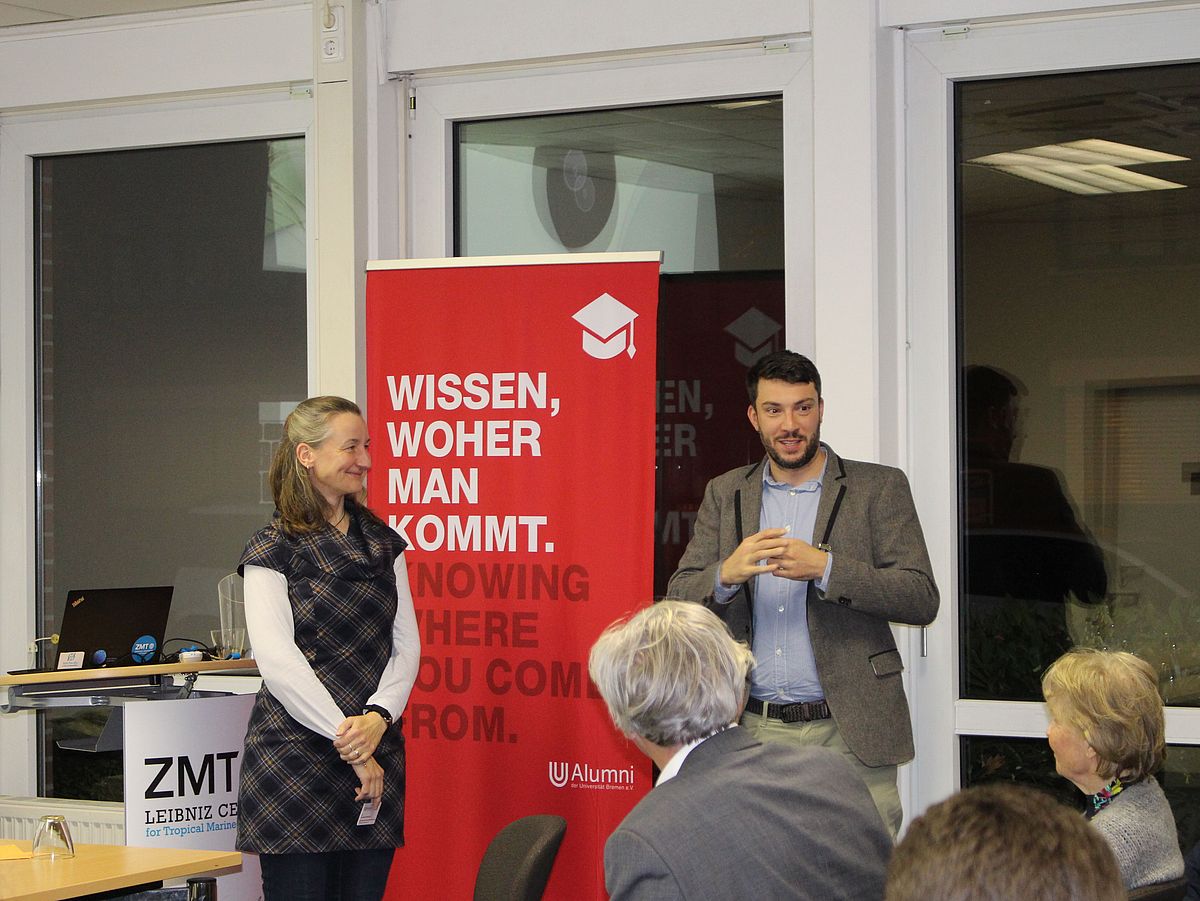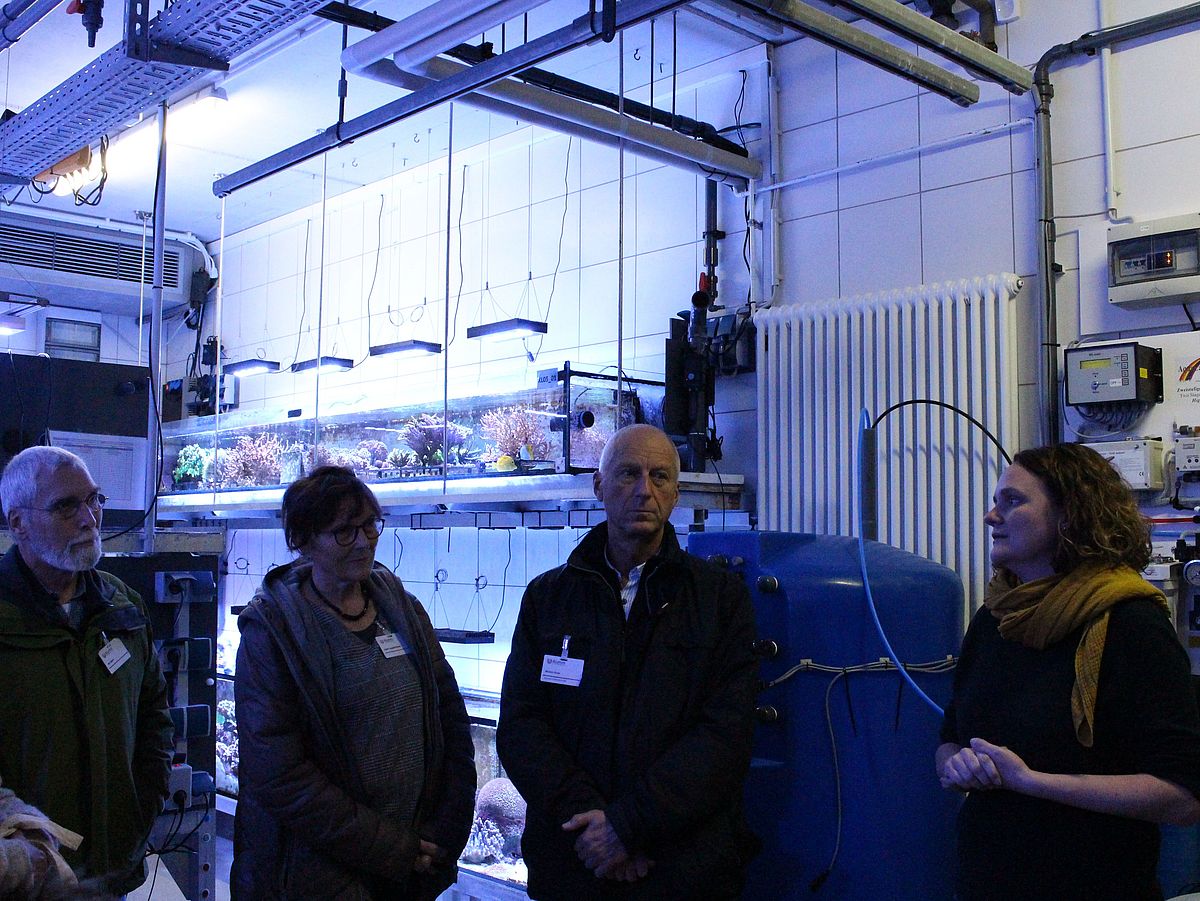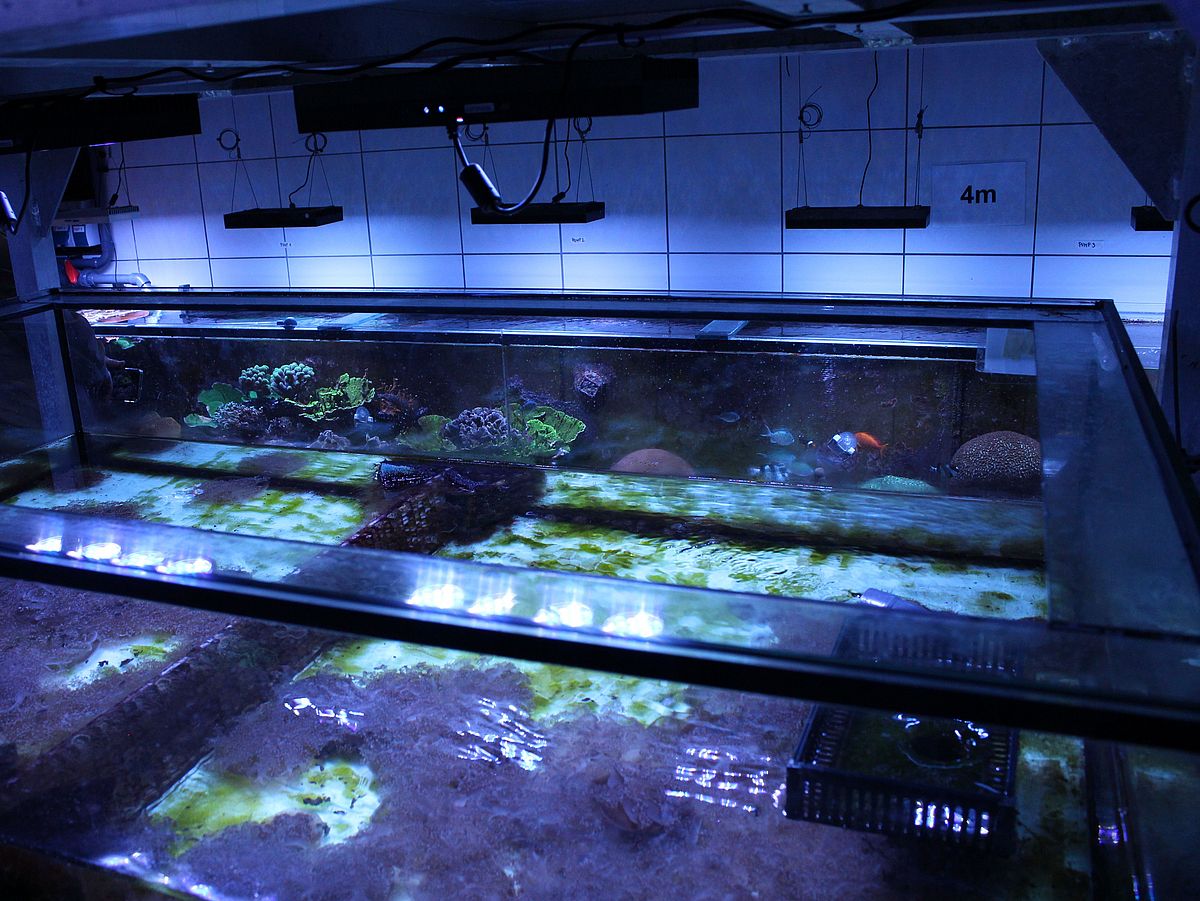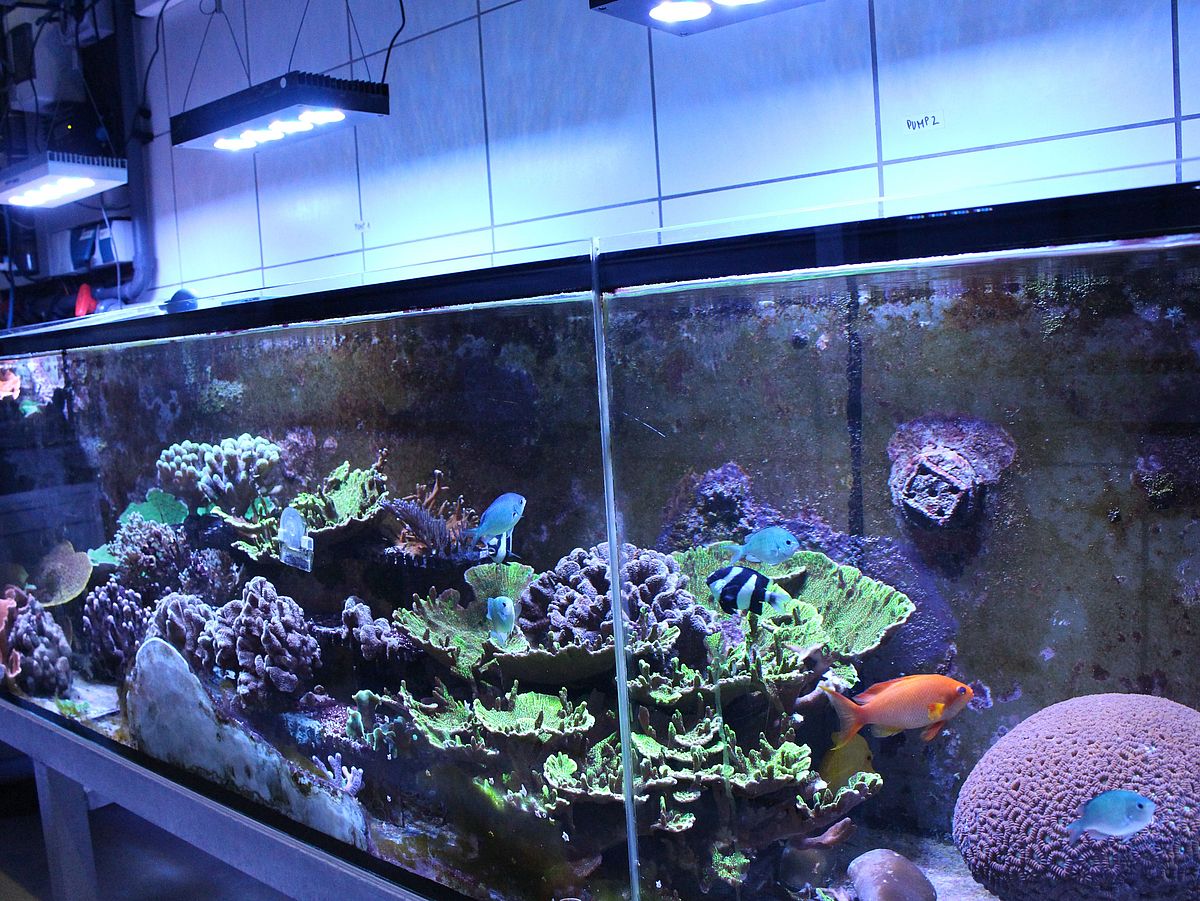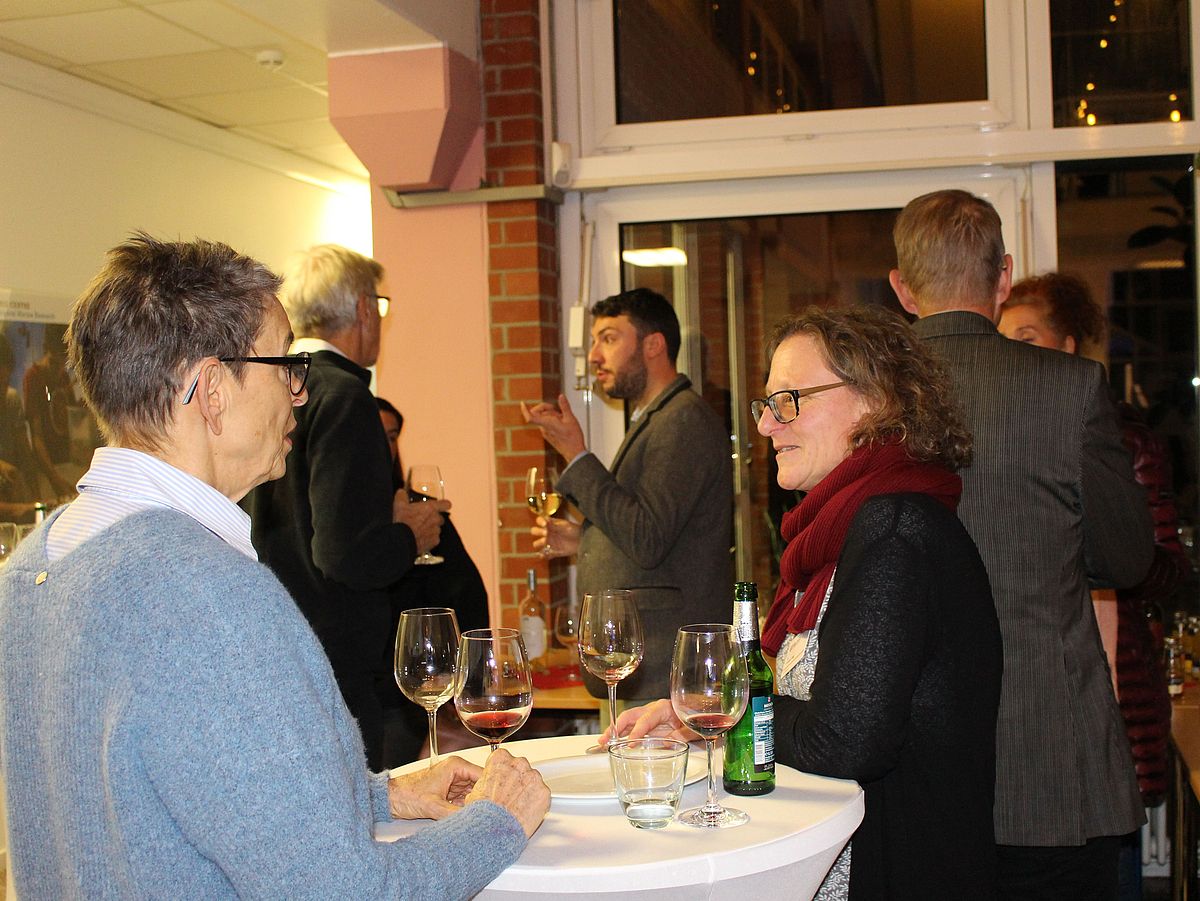Visit to the ZMT: Insights into world-class marine research
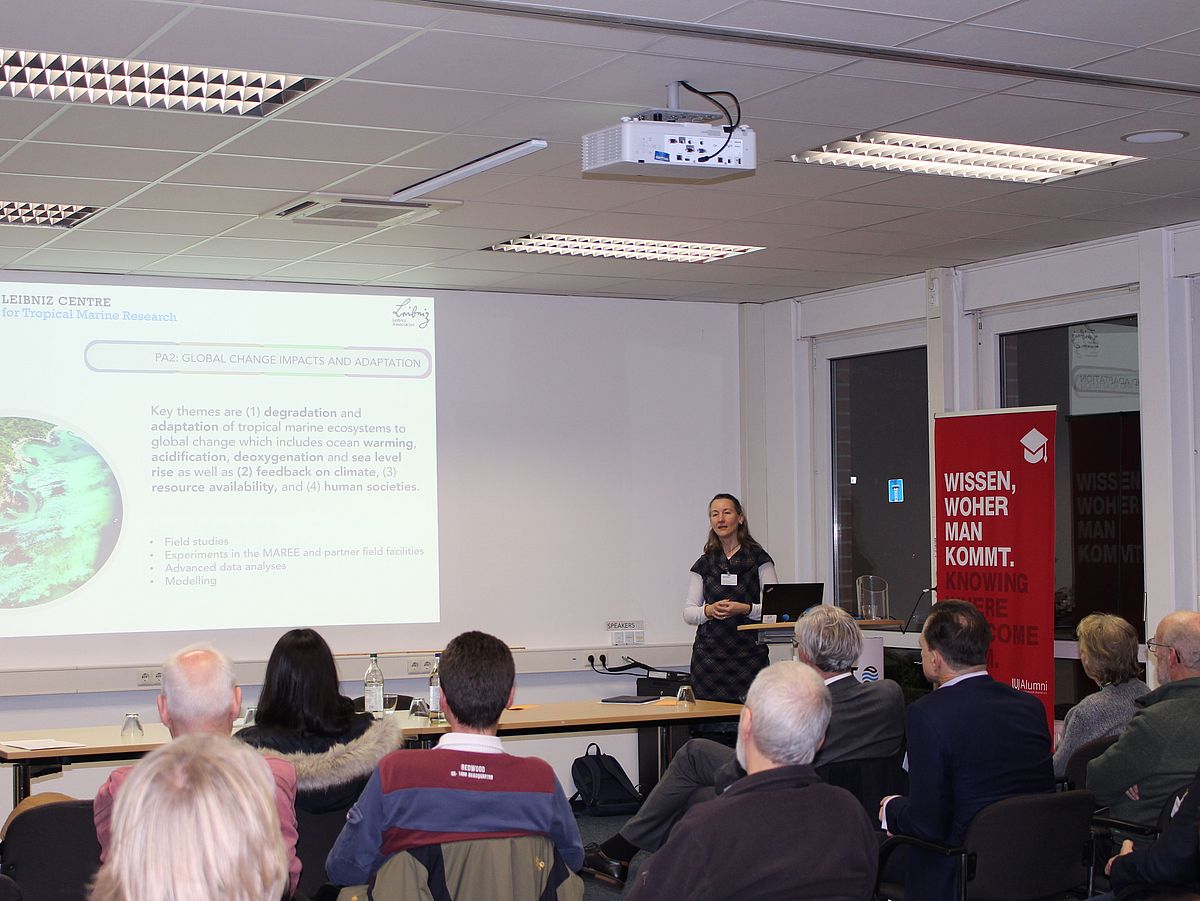
It is one of the alumni association’s fine traditions to combine our general meeting with a visit to a Bremen research institution. This time, the we landed on the ZMT, the Leibniz Centre for Tropical Marine Research. A top choice, as the latest issue of the renowned Shanghai Ranking, which was published just in time for the general meeting, ranked the marine sciences at the University of Bremen as number one in Germany. The ZMT contributes to this, not least through its professors and teaching staff who give courses at Faculty 2 Biology and Faculty 8 Social Sciences. You read that right: social sciences. Following our general meeting, we heard why that would be so, via an informative presentation about the institute from our alumna Dr Annette Breckwoldt. She currently heads the Office for Knowledge Exchange at the ZMT.
Interdisciplinarity and transdisciplinarity, said Breckwoldt, characterise key aspects of the ZMT's work studying tropical coastal ecosystems. Even though the natural sciences have been at the institute´s core since its inception, researchers have also begun to focus on the relationships between humans and nature in coastal regions, and the arising economic conditions. The appointment of Professor Raimund Bleischwitz as scientific director of the ZMT in 2022 is an expression of this holistic approach. The well-known economist and social scientist is a recognised expert and policy advisor in the fields of circular economy, raw material conflicts, eco-innovation and resource policy. At the beginning of 2023, he was also appointed Professor of Global Sustainable Resources at the University of Bremen. ZMT's research objectives, said Breckwoldt, are aligned with the solution-oriented approach of the SDG framework, the 17 UN Sustainable Development Goals. This includes active network participation in the UN Decade of Ocean Science for Sustainable Development initiative (2021-2030). And with that, headings for future research activities: ocean literacy and blue economy, a concept for good stewardship and sustainable use of marine resources.
As ever, though, the natural sciences still predominate at the ZMT. Our alumni were able to see this for themselves during their visit to the MAREE seawater testing facility. There, a tropical marine environment is reproduced in more than 60 experimental aquariums, explained MAREE head Silvia Hardenberg, where pre-industrial, current and future CO² concentrations in the atmosphere are simulated in different water cycles. For the alumni it was another insightful evening of cutting-edge research in Bremen.
